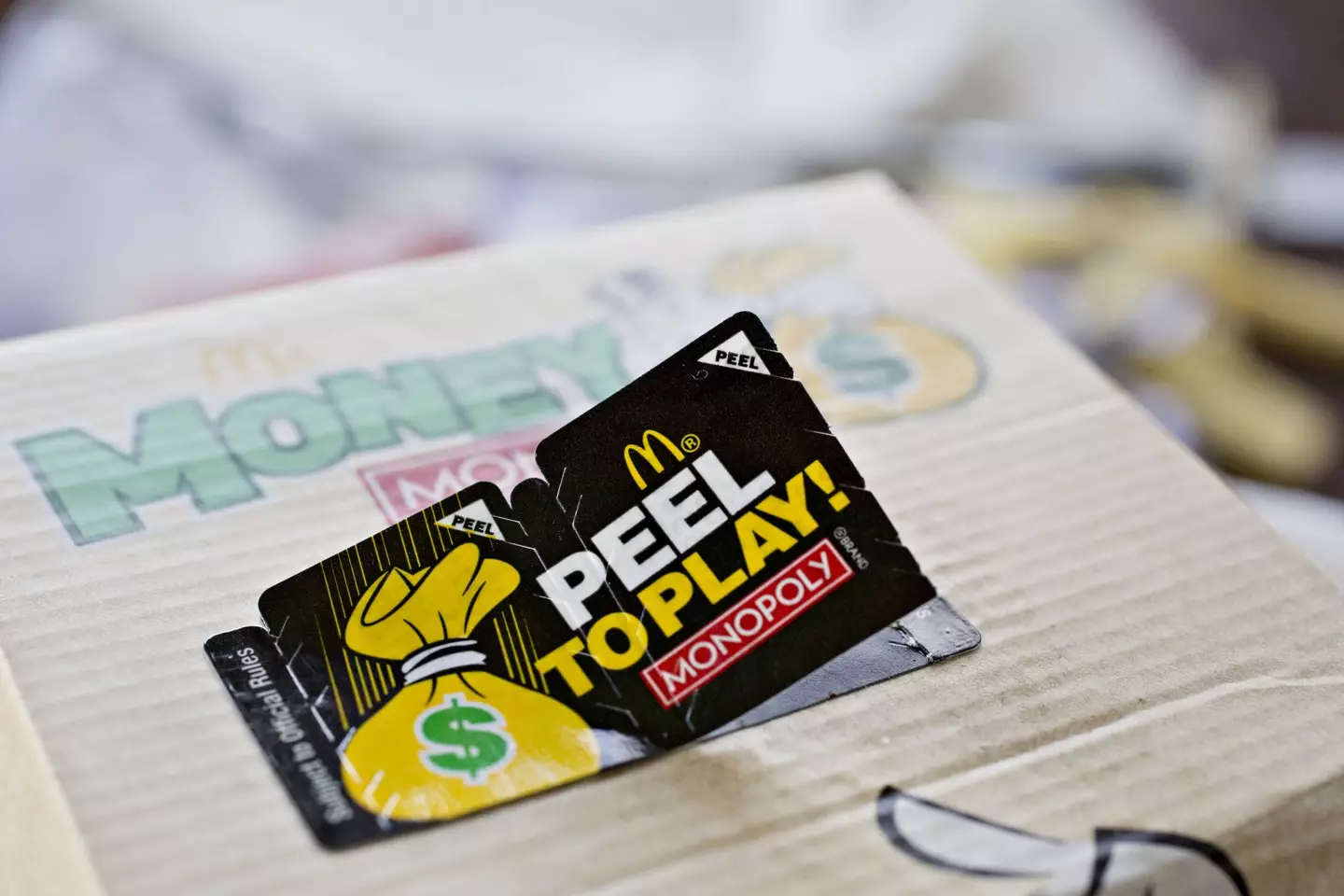
A charity has accused McDonald's Monopoly and games like it of 'normalising gambling'.
GambleAware has drawn attention to a survey it claims shows a connection between prize draw games such as McDonald's Monopoly and Omaze and harm caused by gambling.
In McDonald's Monopoly customers collect 'property' by scanning a code after buying certain food and drinks, which can then be exchanged for prizes including money.
In the UK prize draws are not currently licensed as gambling legally, so are not subject to the rules which regulate the industry.
Advert
However, GambleAware has claimed that the prize draws have 'many similarities' to some kinds of gambling, adding that people 'may not understand the risks associated with them'.
The charity's warnings came as part of its fifth annual Treatment and Support Survey data, which found that demand for gambling support has almost doubled since 2020.
Five years ago 17 percent of adults at risk of problems with gambling, around one in five, were seeking support.

But the latest figures show that figure has increased dramatically to around 30 percent of adults, just under one in three.
This is not the only increase either, with the proportion of adults experiencing problem gambling also rising from 2.4 per cent in 2020 to 3.8 per cent in 2024, while people affected by a loved one's gambling increased from 6.5 percent to 8.1 percent over the same period.
That percentage equates to around 4.3 million adults in the UK affected a friend or family member's gambling.
In a statement shared with The Independent, GambleAware chief executive Zoe Osmond said: “Gambling can be highly addictive, with devastating impacts on people’s lives, relationships and financial stability.
“While it is encouraging that more people have sought help, this rise may also point to a growing public health crisis.
“We are increasingly alarmed by how gambling is being normalised and how frequently people – especially young people – are exposed to gambling across Great Britain.

“To reverse this troubling trend, urgent preventative action is needed. This must include tougher regulation of gambling advertising to stop gambling being portrayed as ‘harmless fun’.
“There should also be mandatory health warnings on all gambling ads, stricter controls on digital and social media marketing, and a full ban on gambling promotion in stadiums and sports venues to protect children and young people from harm.”
An Omaze spokesman said: “Omaze takes consumer safeguarding very seriously. We voluntarily operate an automated monthly spending limit for all customers, and our teams proactively review customer spend patterns to identify whether a customer has multiple subscriptions or if they frequently get close to the cap. This allows us to identify and protect against any potential excessive spend.
“We operate in full compliance with all relevant UK regulations."
A spokesperson for McDonald's told FOODBible: “McDonald's Monopoly is a limited time promotion, not a gambling game - as it is a complementary addition to our meals and does not incur any extra charge. It is designed to add a moment of fun to our customers' days.
"We prominently communicate that the promotion is only suitable for those aged 18+, stating it across all McDonald’s Monopoly promotional advertising, packaging and our website."
Words by Kit Roberts